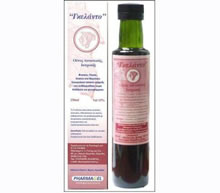
Dictionary of Allergies .. Asthma optimal treatment
Optimal treatment involves achieving the treatment aims which need to be defined for each patient. This involves making the diagnosis, identifying the caus(s), assessing the stage and severity of the disease, the judicious use of drugs and allowing the patient to take responsibility for continuing optimal treatment. Patients with persistent disease (who require treatment for life) need inhaled cortico-steroids (ICS) in doses which stop the progression of the disease and hopefully reduce its severity. Severity is best assessed using a combination of symptoms (including quality of life), variability of peak flow readings, the shape of the response curve to methacholine and the amount of treatment needed to prevent induced attacks. Most patients in the community have mild or episodic disease and need only moderate doses of ICS or sodium cromoglycate. Patients with severe disease need high doses of ICS, an "action plan" and oral steroids and beta agonists available for early control of exacerbations. Care is needed to use the dose of ICS which improves the disease without causing side effects. Oprtimal treatment is best maintained in the long term by the patient who needs to be fully informed about the disease and about current understanding of the drugs[1].
Omalizumab is a humanized monoclonal anti-immunoglobulin E (IgE) antibody indicated in Europe for the treatment of uncontrolled severe persistent allergic (IgE-mediated) asthma despite optimal therapy with inhaled corticosteroids and long-acting beta(2) agonists. Between 2005 and 2007 280 patients (58% female, mean age 44+/-16 yrs., 46% on oral corticosteroids, median serum IgE level 235IU/ml) who met the EU criteria for add-on therapy with anti-IgE were treated prospectively with omalizumab by 134 physicians as part of a post-marketing surveillance trial and were followed-up for 6 months.
The median follow-up time was 195 days, the patients were treated with a median dose of 450mg omalizumab every 4 weeks. After 6 months there was a marked effect of omalizumab treatment on daily (-76%) and nocturnal symptoms (-84%), exacerbations (-82%), unscheduled health care contacts (-81%), hospitalizations (-78%) and quality of life (Mini-AQLQ: score increase from 2.9 to 4.5). Overall, efficacy of omalizumab was rated as excellent or good by the majority of physicians (82%) and patients (86%). In 19 patients (7%) omalizumab-related adverse events were recorded. This post-marketing surveillance trial confirms the marked and clinically relevant effect of omalizumab on asthma symptoms and level of asthma control in the majority of patients with severe persistent allergic (IgE-mediated) asthma in a real-life situation[2].
Refernces
1. Woolcock, A.J.: How to optimize the treatment of asthma. XVth
EAACI Congress. Airway Inflammation, Paris, May 11, 1992.
2. Korn S, Thielen A, Seyfried S, Taube C, Kornmann O, Buhl R. Omalizumab in patients with severe persistent allergic asthma in a real-life setting in Germany. Respir Med. 2009 Jun 8.
Γκέλης Ν.Δ. - Λεξικό Αλλεργίας - Εκδόσεις ΒΕΛΛΕΡOΦΟΝΤΗΣ - Κόρινθος 2013
Gelis Ν.D. - Dictionary of Allergies - VELLEROFONTIS Publications - Corinth 2013




